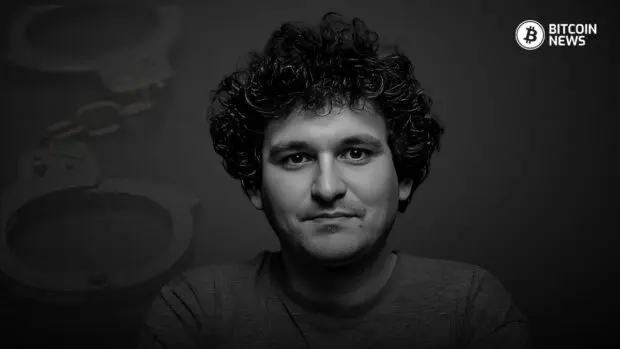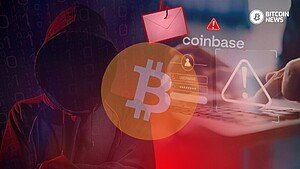Sam Bankman-Fried (SBF), the once-celebrated founder and CEO of digital asset exchange FTX, has been sentenced to 25 years in prison for his involvement in what has been termed as one of the largest financial frauds in American history. The Sam Bankman-Fried sentence has sent shockwaves through the community and raised questions about accountability in the burgeoning digital asset industry. SBF’s transformation from admired entrepreneur to convicted felon is examined through his expressions of remorse, legal challenges, and the effects on FTX customers.
From Digital Assets King to Convicted Felon
Bankman-Fried’s rise to prominence in the digital asset world was swift, with FTX gaining widespread recognition and investment. However, the company’s sudden collapse in November 2022 left millions of users reeling, with funds worth $10 billion missing. Bankman-Fried’s subsequent conviction on seven counts of fraud and conspiracy charges came as a seismic shock to the industry.
Sam Bankman-Fried Sentence: Expressing Remorse
In the aftermath of his sentencing, Bankman-Fried has made public statements expressing remorse for his actions. He admitted to making “bad decisions” that led to FTX’s insolvency, acknowledging the impact on customers and co-workers.
In an interview with ABC News, he stated:
“It’s most of what I think about each day, I’m haunted, every day, by what was lost. I never intended to hurt anyone or take anyone’s money. But I was the CEO of FTX, I was responsible for what happened to the company, and when you’re responsible it doesn’t matter why it goes bad. I’d give anything to be able to help repair even part of the damage. I’m doing what I can from prison, but it’s deeply frustrating not to be able to do more.”
In his statement, Bankman-Fried acknowledges that he didn’t perceive his actions as illegal but admits to falling short of his own ethical standards. He expresses remorse for the impact on customers and colleagues, acknowledging their frustration and sense of betrayal. He emphasizes the importance of compensating customers at the current price and acknowledges the emotional toll on those who worked alongside him.
Challenges and Legal Battles
Despite his remorse, Bankman-Fried faces significant legal battles. He has announced plans to appeal his conviction, citing concerns about the fairness of his trial. His defense team argues that certain trial testimony misrepresented events and prevented them from presenting crucial evidence. Meanwhile, FTX’s lawyers advocate for the liquidation of assets linked to Bankman-Fried, aiming to provide restitution to affected parties and salvage the company’s reputation.
In Manhattan’s sentencing, Judge Kaplan accused SBF of perjury for denying awareness of fund misuse. He criticized SBF’s promise of full restitution as deceptive and illogical.
Judge Kaplan added:
“He knew it was wrong. He knew it was criminal. He regrets making a very bad bet about the likelihood of getting caught […] A thief who takes his loot to Las Vegas and successfully bets the stolen money is not entitled to a discount on the sentence by using his Las Vegas winnings to pay back what he stole.”
He expressed that the sentence was determined based on the concern that the individual might pose a serious threat in the future. The purpose of the sentence was to incapacitate him to the maximum extent possible for a substantial duration.
Bankman-Fried expressed:
“A lot of people feel really let down. And they were very let down. And I’m sorry about that. I’m sorry about what happened at every stage […] My useful life is probably over. It’s been over for a while now, from before my arrest.”
Interestingly, in February, FTX’s debtors’ lawyers assured a Delaware bankruptcy court that creditors and customers would receive full compensation, as stated by Axios. Marc Mukasey, representing FTX, emphasized in a February 27 sentencing memo that victims would recover fully.
Claims and Counterclaims
Throughout the legal proceedings, there have been conflicting claims regarding the extent of Bankman-Fried’s culpability and the potential for FTX customers to be repaid. While Bankman-Fried maintains that customers would have been reimbursed if he or another FTX employee had remained CEO, FTX’s new CEO, John Ray III, disputes these assertions. Ray contends that FTX’s recovery efforts were hindered by Bankman-Fried’s actions and decisions.
Ray wrote:
“Mr. Bankman-Fried continues to live a life of delusion. The ‘business’ he left on November 11, 2022, was neither solvent nor safe.”
A Tumultuous Journey Ahead
As Bankman-Fried begins his prison term, he faces an uncertain future. While he hopes for early release based on good behavior, the road ahead remains challenging. The impact of his actions reverberates through the digital asset community, prompting reflection on accountability and regulation in the industry.
FTX customers may find relief soon as the company recently sold its Anthropic stake, a competitor of OpenAI. Pending approval, proceeds from the sale might reimburse customers affected by the company’s past mismanagement under SBF’s leadership.
Conclusion
The case of Sam Bankman-Fried serves as a cautionary tale in the world of digital assets. His journey from digital assets king to convicted felon highlights the risks and consequences of unchecked ambition and unethical behavior. As legal battles continue and FTX customers seek restitution, the fallout from this case will likely shape discussions around accountability and governance in the evolving landscape of digital finance.










